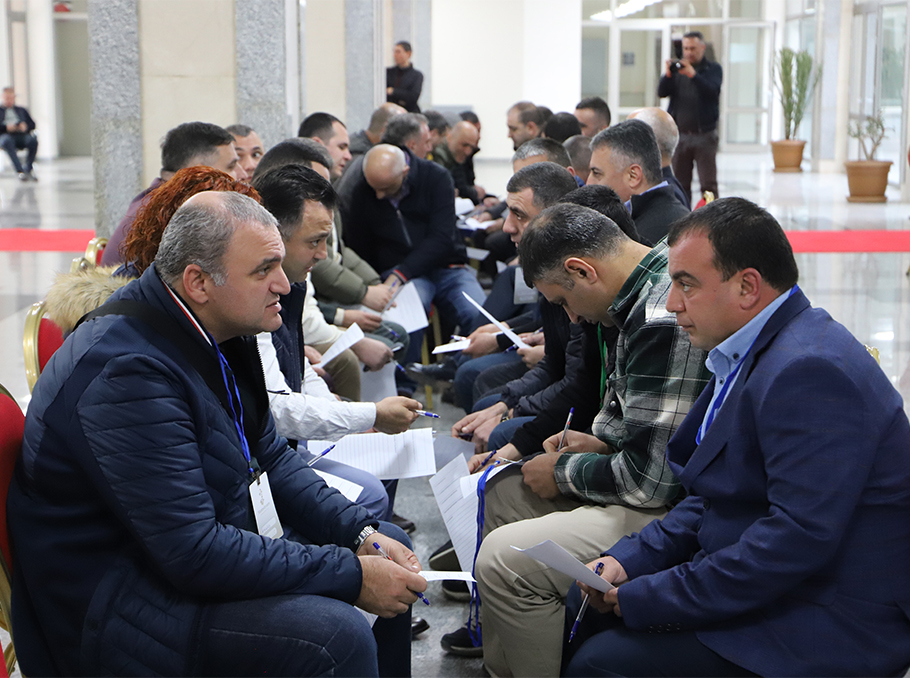In recent years, several socio-economic development initiatives have been launched in the Kapan community, supported through the “Mayors for Economic Growth Facility” initiative, funded by the European Union and implemented by the United Nations Development Programme (UNDP).
The “Mayors for Economic Growth Facility” initiative implemented in Kapan is part of the Resilient Syunik Team Europe initiative, which is the joint undertaking of the EU, the European Investment Bank, the European Bank for Reconstruction and Development, Austria, the Czech Republic, Estonia, Finland, France, Germany, Lithuania, the Netherlands, Poland, Sweden and Switzerland, joining as an external partner. The key goal of the initiative is to promote the sustainable socio-economic development of Syunik.
Innovative approach to community development
Launched in 2022 as part of the initiative’s second phase, the project in Kapan introduced a portfolio approach as an innovative management tool. This approach encourages flexible, experimental, and data-driven decision-making. Unlike traditional models of leadership and project management, it also allows for mistakes.
“At first, the culture of experimentation felt unfamiliar, but today, it is recognized as an essential part of development - an opportunity to learn. We try different solutions, analyse the results, and only then choose the best option,” said Gor Tadevosyan, Deputy Head of the Kapan Community.
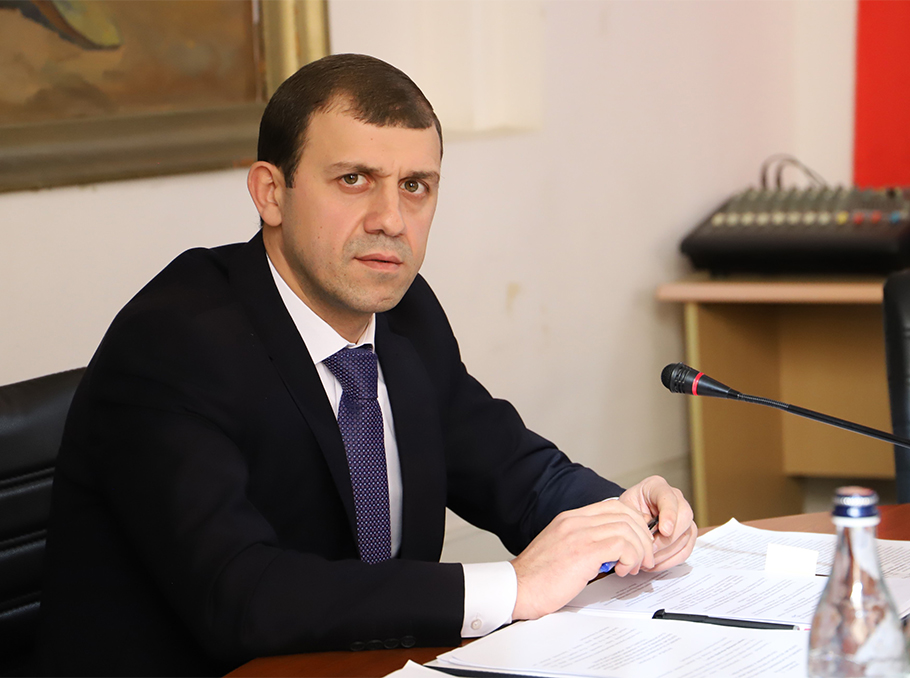 Gor Tadevosyan
Gor Tadevosyan Photo: Mediamax
Through a portfolio approach, communities shape their development vision by assessing the interconnections, impacts, and implementation priorities of various initiatives, based on a combined analysis of local potential, resources, needs, and perspectives. This vision then guides the creation of targeted programs and activities, which are initially implemented on an experimental basis through project funding. If these pilot initiatives produce tangible results, they can be institutionalized with on-going funding from community or state budgets.
According to Krist Marukyan, M4EG Armenia program coordinator, even initiatives that do not achieve the desired outcomes in their initial stages hold significant value from a learning perspective. “Instead of being dismissed, each initiative is analysed to understand why a particular solution did not work and what alternative approaches could be applied. Thus, the portfolio approach becomes a new culture of community development, built on experience, analysis, and practices of adapting to new realities. Communities that once focused primarily on administrative functions are now emerging as strategic actors, shaping development and driving change,” he emphasized.
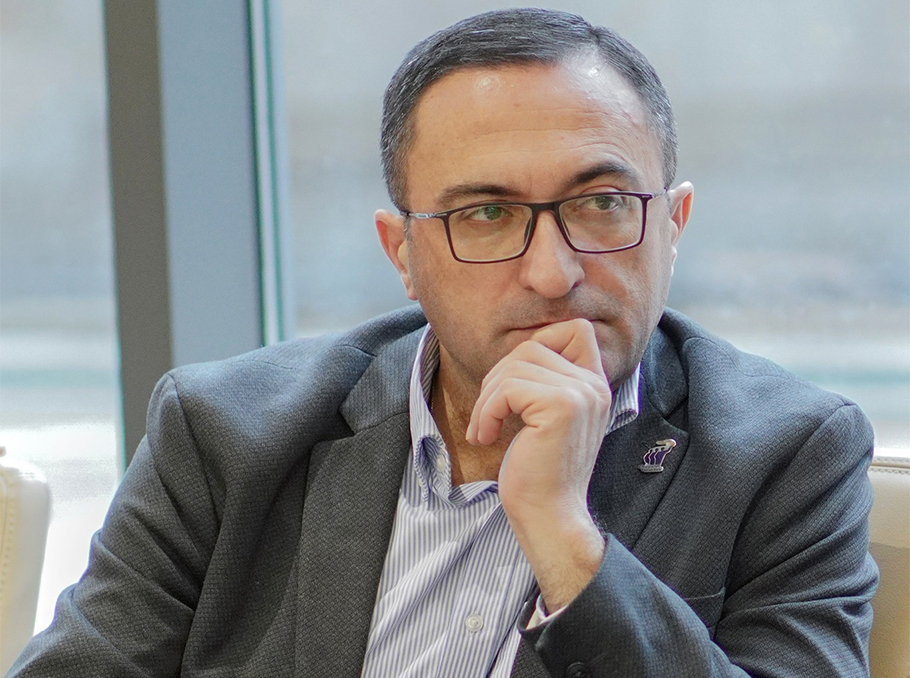 Krist Marukyan
Krist Marukyan Photo: Mediamax
As part of the M4EG program, the portfolio approach was implemented in three communities: Gyumri, Areni, and Kapan. Throughout the program, each community identified its unique vision and development priorities. In Kapan, for example, consultations with various local stakeholders led to a focus on business diversification, the promotion of alternative forms of entrepreneurship, and the introduction of new mechanisms for community participation, ensuring more sustainable, inclusive, and prospective development.
Diversifying the local economy as an alternative to mining
According to Gor Tadevosyan, Deputy Head of the Kapan Community, two key goals were identified at the outset of the program: improving the quality of social services and diversifying the local economy. “Mining has traditionally been the main economic driver in Kapan. That’s why we placed strong emphasis on developing other sectors, supporting the growth of small, medium, and large businesses through alternative channels,” said Gor Tadevosyan.
To support large businesses, a branch of the “Mantashyants” Business Club was established in Kapan in 2024 with the support of the Kapan Municipality. The club serves as a platform connecting local entrepreneurs with Armenian and international partners. It currently includes more than 15 entrepreneurs from Kapan, representing sectors such as hospitality, construction, trade, and agriculture. The club offers its members extensive opportunities for experience exchange, professional training, networking, and expanding their businesses into new markets.
In addition to group meetings, individual business consultations were held in Kapan. This format enables entrepreneurs to identify their development priorities and receive professional support tailored to their specific needs. A comprehensive study was also conducted to explore potential growth areas, assess existing challenges, and uncover opportunities for business development. The findings were shared with local entrepreneurs to support more informed and strategic decision-making.
Artyom Hambardzumyan, a building materials supplier, participated in individual business consultations, describing it effective and practical – especially given the specific nature of his business. “We discussed development, planning, and strategy development. Even a businessman with years of experience can learn something new and continue to grow. We have already started applying a number of recommendations and are seeing the results,” he noted.
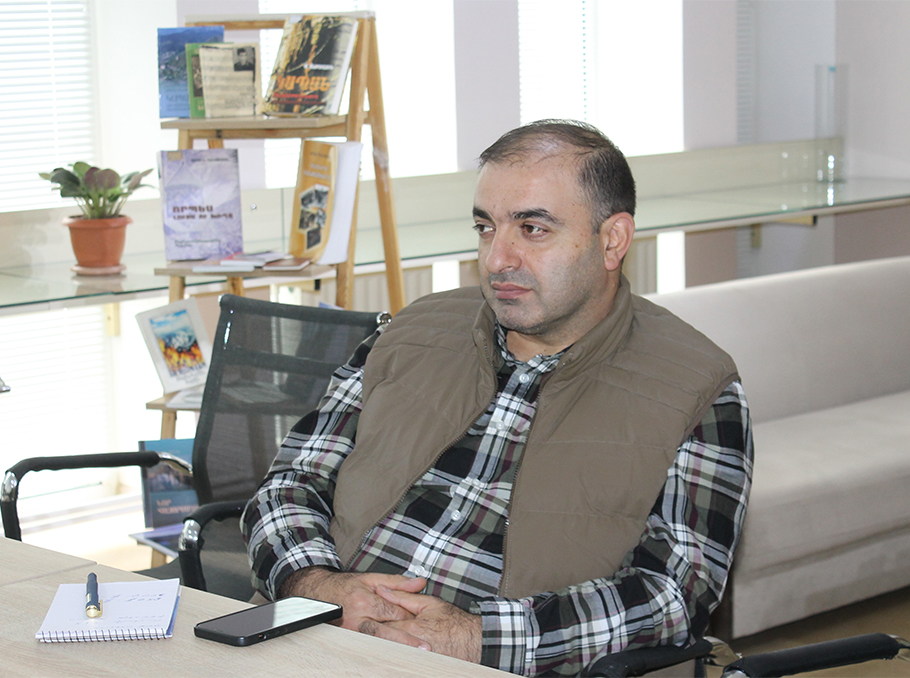 Artyom Hambardzumyan
Artyom Hambardzumyan Photo: Mediamax
According to UN representatives, these practices foster trust in local government and create an atmosphere of partnership between the community and businessmen.
Uncovering and strengthening the potential of young people
A key focus of the program is developing the entrepreneurial potential of young people. Dozens of young individuals from Kapan participated in entrepreneurship courses that covered everything from idea formulation to building a sustainable business. At the end of the courses, participants had the opportunity to meet with the community leader to present their business ideas. As a result, four aspiring entrepreneurs were awarded grants to take their first practical steps.
Eva Khachatryan is one of the program’s beneficiaries. She founded the “Hepart Academy” educational centre, which operates in a hybrid format and offers courses in social media marketing, graphic design, filmmaking, computer skills, and other modern professions. “During the courses, I realized that an idea I had long envisioned could actually become a real business. It was a wake-up call that pushed me to take the first practical step,” said Eva, adding that the centre not only provides education but also helps its graduates to find jobs. “For us, it is not just a business, it is also a tool for addressing community issues.”
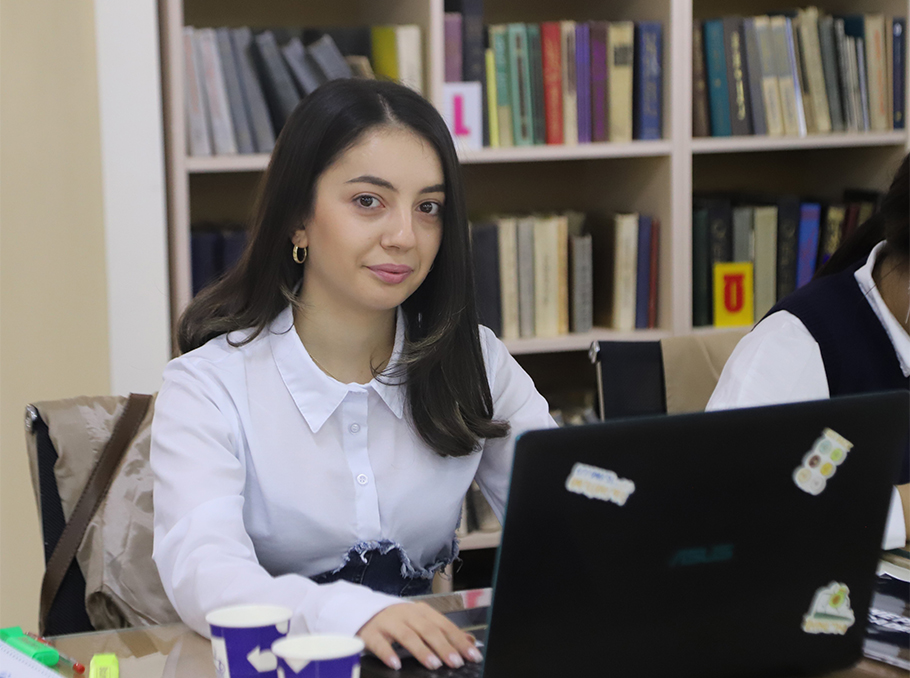 Eva Khachatryan
Eva Khachatryan Photo: Mediamax
The youth centre, established as part of initiatives developed through the Kapan community’s portfolio approach, serves not only as a space for entertainment, but also as a platform for educational, cultural, intellectual, and community-driven activities, fostering the discovery and development of young people’s potential.
“We are not just participants in community events, we also initiate programs ourselves - ranging from educational to cultural and social activities. The centre has truly become a place where ideas transform into initiatives, and young people really contribute to community development,” said Hrant Arzumanyan, Coordinator of the Kapan Youth Centre, in a conversation with us.
Young people have also been included in the development of business skills. The program places emphasis on the reinvention of vocational education. As part of this initiative, new groups have been launched at the Kapan Children’s and Youth Creative Centre and the School of Fine Arts, offering courses in pottery, sewing and patternmaking, carpet weaving, and woodworking.
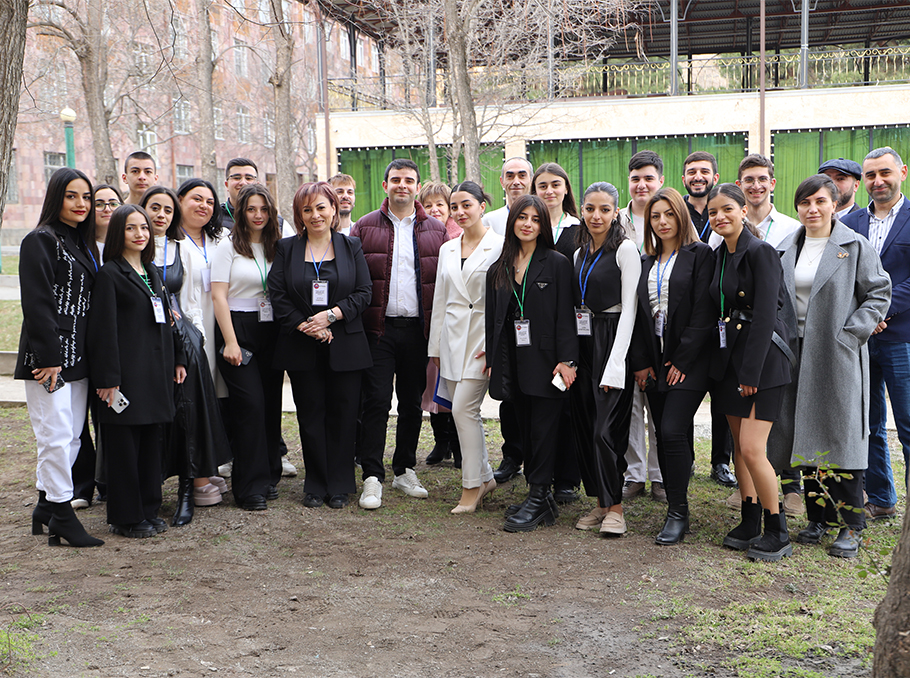
Photo: Mediamax
The goal of this initiative is to equip teenagers and young people with new, practical skills that can not only serve as a profession but also lay the foundation for their own businesses in the future. Separate classrooms have been established for each group, and the necessary equipment and materials have been purchased.
“We have emphasized that these platforms should evolve based on the existing opportunities within the community. As a result, these educational institutions have become not only spaces for skill development but also environments that foster professional growth,” stressed Gor Tadevosyan.
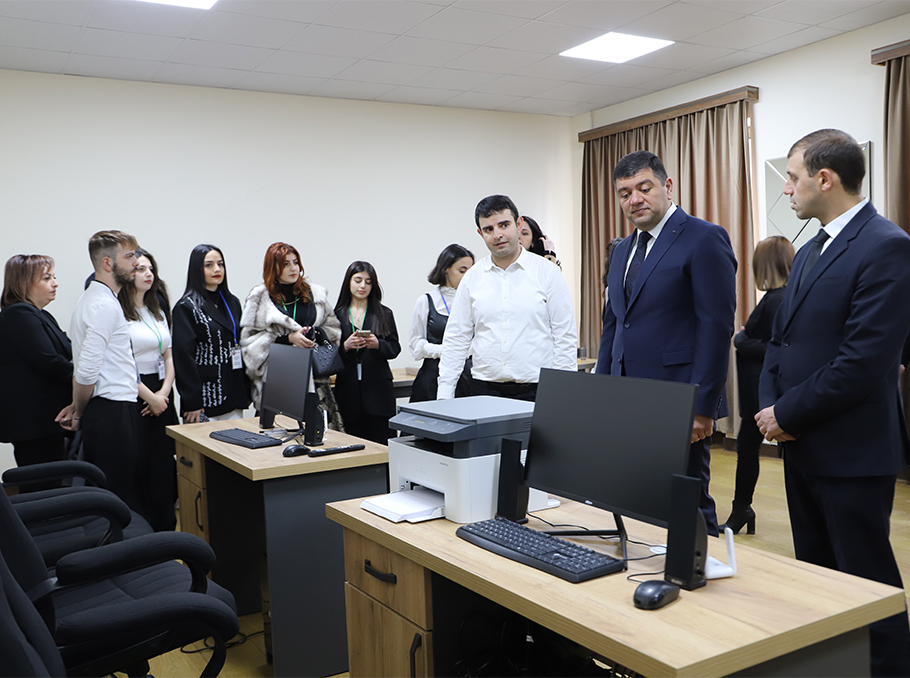
Photo: Mediamax
As part of its efforts to promote entrepreneurship, the community is also working to introduce innovative agricultural models. To support this goal, grants have been provided through a competitive process for initiatives such as hydroponic fodder production, micro-greens cultivation, rabbit farming, fruit chip production, and the introduction of smart greenhouse management systems.
Social support on one platform: a new phase of digitalization in Kapan
A digital social platform has been launched in Kapan, enabling social workers to maintain a comprehensive digital database of residents, ensuring a quick and efficient response to both existing and emerging issues. The platform’s creation was particularly emphasized during the integration of displaced people into the community.
“Working in the social sector, we have often been unable to respond quickly due to a lack of data. Now that information is on one platform, it is both accessible and accurate,” said the community social workers who were initially sent to Kapan’s sister town, Saint-Étienne in France, where they gained valuable insights through an exchange program and became familiar with the model used there. Upon their return, a digitalized social data system was developed aimed at enhancing the management and effectiveness of social support processes in the community.
In the near future, market analysis, branding, and PR efforts will be undertaken to promote Kapan. The community also continues to advance the strategic initiatives already in motion, including the social data management platform and the local activities of the business club.
The new face of local governments: from administration to development
The program has not only reshaped the directions of community development but also profoundly transformed the culture of governance within local governments. Community employees are now actively involved in project development, ensuring participation, shaping development visions, and implementing programs. A portfolio team has been established within the local government to coordinate the community’s strategic initiatives and align local needs with available development opportunities.
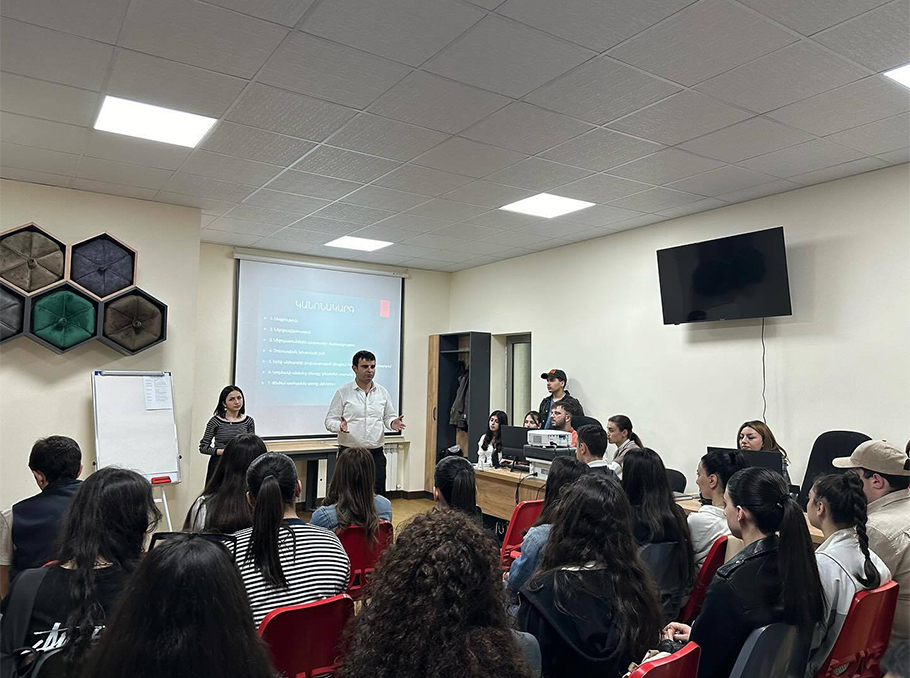
Photo: Mediamax
“This program has significantly shifted the perception of local governments. They are no longer just administrative bodies, they are developing structures that take initiative and drive change,” summarized Krist Marukyan.
This approach presents a new model of local government, focused on sustainable development, a culture of cooperation, and a practical capacity to address the community’s real needs. Governance becomes not a procedure, but a dynamic process aimed at achieving results.
Anahit Baghdasaryan
“The Resilient Syunik Team Europe” initiative is the joint undertaking of the European Union, the European Investment Bank, the European Bank for Reconstruction and Development, EU Member states - Austria, Czechia, Estonia, Finland, France, Germany, Lithuania, the Netherlands, Poland, Sweden, and Switzerland also joining as an external partner. The initiative aims to contribute to the sustainable socioeconomic development of the Syunik region.
This article was published with the financial support of the European Union. Its content is the sole responsibility of Mediamax and does not necessarily reflect the views of the European Union.









